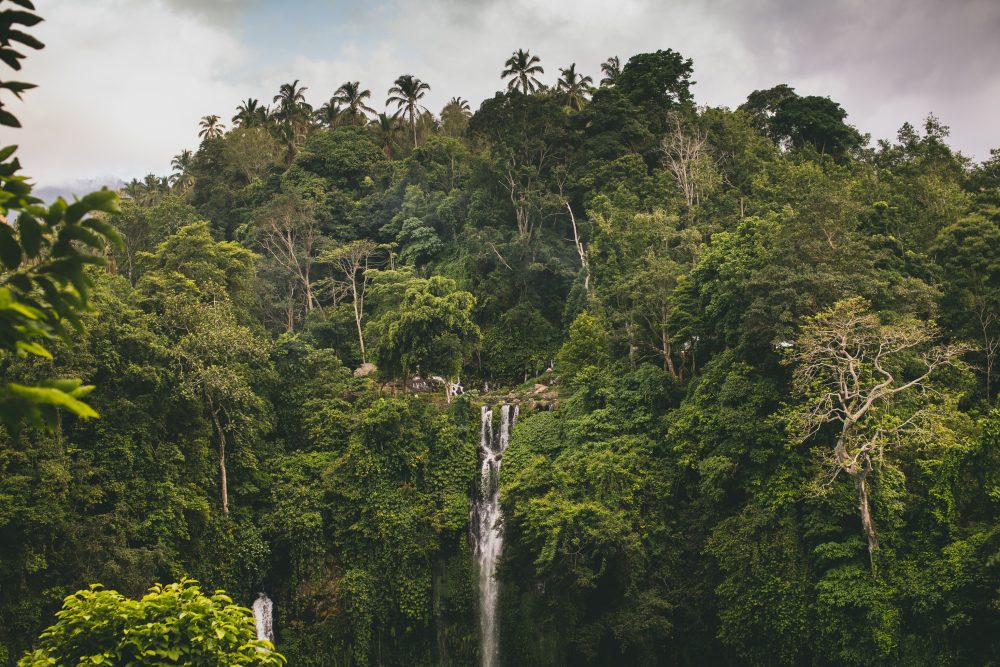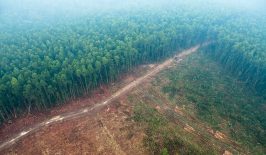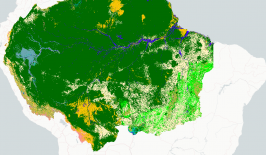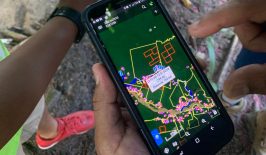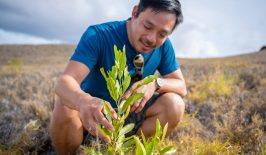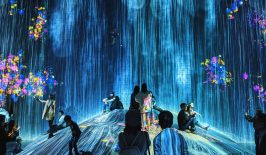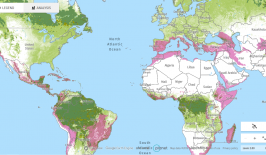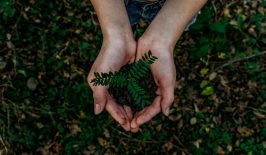Particularly in subtropical regions, deforestation has a negative impact on ecosystems, biodiversity and climate. On the island of Borneo (Indonesia), forests are being cut down to grow monocultures such as palm oil – more than half of the forests there have already disappeared. Added to this are large-scale raw material extraction and steady population growth – factors that run counter to sustainable forestry and have a major impact on the living conditions of the local population.
The non-profit organisation Fairventures Worldwide is tackling this problem with immediate solutions. With its projects, the organisation aims to restore tropical forests and relies on modern technologies and intensive cooperation with local smallholders for reforestation. This is intended to provide the local population with additional economic opportunities and ensure that they can act independently.
The organisation’s innovative approach uses fast-growing sengon trees, which are used to reforest degraded areas. Sengon is native to Indonesia and is particularly suitable for reforestation of lowland rainforests. Due to their rapid growth, the trees are ready for harvesting after only seven years with a diameter of about 90 centimetres, and their wood can be further processed. In addition, the areas under the trees in the resulting forests can be used to grow food crops such as vegetables or spices.
The project is accompanied by the TREEO app, which was specially developed for this purpose. Smallholders can use it to record data independently and thus contribute to project monitoring. The app can be used to track the growth of the trees and view data on the CO2 stored. This continuously optimises project measures, and the app is also intuitive and easy to use. Additional drone and cloud-based technologies monitor the reforested areas where Fairventures is active and display them transparently in a web map.
Wooden Buildings as a Sustainable Alternative
Currently, the reforestation project is going one step further to address a present problem in the Borneo region:
Building materials such as concrete or aluminum, and also steel, have already largely replaced traditional construction here. However, these are not very sustainable and often cause rooms to overheat or mould to form. To counteract this, in a new DBU-funded project, the organisation is further processing the lightweight wood from sengon cultivation into multilayer and glued wood slats, which can become the construction material for new buildings. Trees already bind CO2 when they grow and promote biodiversity; moreover, as a lightweight and sustainable building material, wood can replace other raw materials with higher carbon consumption. Fairventures has therefore already developed complete house systems using multilayer panels made from the sustainable raw material. The basic elements are supplemented by panels made of regionally renewable bamboo for roofing and facades.
In a pilot project in Kalimantan (Borneo), the approach has already been implemented on a large scale. A first forest campus made of the lightweight wood panels has been built around a rearing station for sengon saplings. The main advantages of this new building system are that it is adaptable and can thus be used under varying regional conditions. In addition, the construction elements can be easily manufactured by the local residents themselves. This is intended to secure a new, permanent source of income for them. An intensive transfer of knowledge is therefore also taking place on site through training courses and evaluations.
With the new timber construction project, the organisation draws on many years of experience in the reforestation and afforestation of degraded areas in Southeast Asia. Nevertheless, Fairventures Worldwide continues to face very real challenges. For example, the project’s economic added value could create an incentive to encroach on already existing forest. The project organisers are countering this by controlling areas more strictly and by intensive monitoring. Equally relevant, however, is the close cooperation with the light timber industry, since large companies have already made attempts to buy land from the local population. Cooperation with political actors also ensures that the project remains in place.
The project primarily addresses the current challenge in the subtropical region that living space is becoming increasingly scarce due to rising population figures and the extensive wear and tear on soil and raw materials. The ownership of products and land by the local population are at the core of the project. Currently, the project areas store about 5.4 tons of carbon per hectare per year. According to the organisation, without cutting down and processing the sengon trees, this would be up to 25 tons. However, the lightweight wood in the form of a building material can replace carbon-heavy building materials in the long term and also creates added income value for the population. This creates a rotation system that takes into account not only the ecological but also the economic and social dimensions of sustainability.
